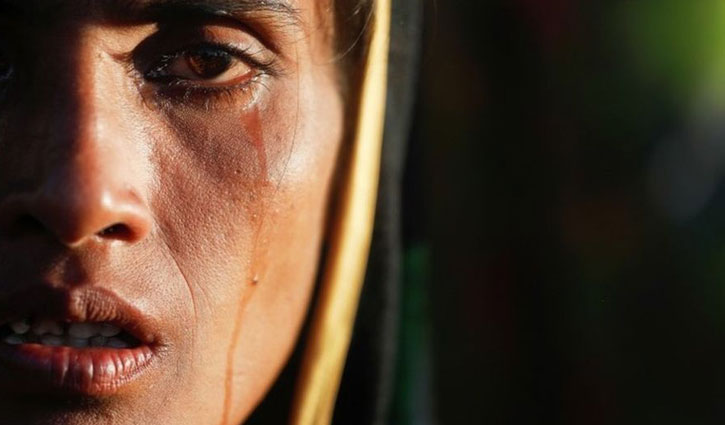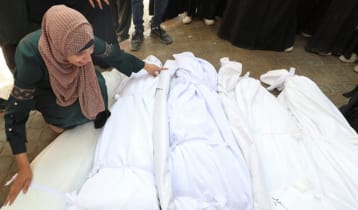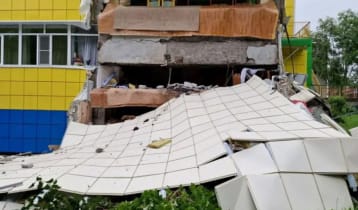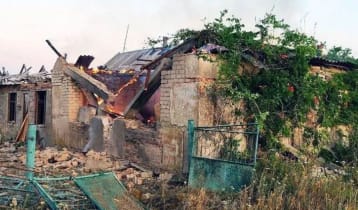UN report calls for genocide charges against Myanmar
3 || risingbd.com

International Desk: Myanmar’s top military generals, including Commander-in-Chief Senior-General Min Aung Hlaing, must be investigated and prosecuted for genocide in the north of Rakhine State, as well as for crimes against humanity and war crimes in Rakhine, Kachin and Shan States, a report by the UN Independent International Fact-Finding Mission on Myanmar today urged.
The Mission, established by the UN Human Rights Council in March 2017, found patterns of gross human rights violations and abuses committed in Kachin, Rakhine and Shan States that “undoubtedly amount to the gravest crimes under international law”, principally by Myanmar’s military, the Tatmadaw, but also by other security forces.
“Military necessity would never justify killing indiscriminately, gang raping women, assaulting children, and burning entire villages. The Tatmadaw’s tactics are consistently and grossly disproportionate to actual security threats, especially in Rakhine State, but also in northern Myanmar,” the report states.
“They are shocking for the level of denial, normalcy and impunity that is attached to them. The Tatmadaw’s contempt for human life, integrity and freedom, and for international law generally, should be a cause of concern for the entire population.”
The crimes against humanity committed in Kachin, Shan and Rakhine States include murder; imprisonment; enforced disappearance; torture; rape, sexual slavery and other forms of sexual violence; persecution and enslavement. In addition, in Rakhine State, the elements of the crimes against humanity of extermination and deportation are also present.
The Mission also concluded “there is sufficient information to warrant the investigation and prosecution of senior officials in the Tatmadaw chain of command, so that a competent court can determine their liability for genocide in relation to the situation in Rakhine State.”
“The crimes in Rakhine State, and the manner in which they were perpetrated, are similar in nature, gravity and scope to those that have allowed genocidal intent to be established in other contexts,” the report states. “Factors pointing at such intent include the broader oppressive context and hate rhetoric; specific utterances of commanders and direct perpetrators; exclusionary policies, including to alter the demographic composition of Rakhine State; the level of organization indicating a plan for destruction; and the extreme scale and brutality of the violence.”
The Mission has drawn up a list of alleged perpetrators as priority subjects for investigation and prosecution, whom it believes had effective control and bear the greatest responsibility. Responsibility starts at the top, with the Tatmadaw Commander-in-Chief Senior-General Min Aung Hlaing. Five other military commanders are also named in the report: the Deputy Commander-in-Chief, Vice Senior-General Soe Win; the Commander, Bureau of Special Operations-3, Lieutenant-General Aung Kyaw Zaw; the Commander, Western Regional Military Command, Major-General Maung Maung Soe; the Commander, 33rd Light Infantry Division, Brigadier-General Aung Aung; the Commander, 99th Light Infantry Division, Brigadier-General Than Oo. A longer list of names will be kept in the custody of the UN High Commissioner for Human Rights and can be shared with any competent and credible body pursuing accountability in line with international norms and standards.
The report notes that civilian authorities had little scope to control the actions of the Tatmadaw. It also finds that “through their acts and omissions, the civilian authorities have contributed to the commission of atrocity crimes.”
“The State Counsellor, Daw Aung San Suu Kyi, has not used her de facto position as Head of Government, nor her moral authority, to stem or prevent the unfolding events in Rakhine State,” the report states.
“Impunity is deeply entrenched in Myanmar’s political and legal system, effectively placing the Tatmadaw above the law,” the report states, adding that justice has therefore remained elusive for victims in the country for decades. “The impetus for accountability must come from the international community.”
The Mission called for the situation in Myanmar to be referred to the International Criminal Court or for an ad hoc international criminal tribunal to be created. In the interim, it called for an independent, impartial mechanism to collect, consolidate, preserve and analyse evidence of violations. It also recommended targeted individual sanctions against those who appear to be most responsible.
The report states that the massive violence and consequent mass exodus sparked by the events of 25 August 2017 – when the armed group, ARSA led attacks on military and security outposts across northern Rakhine State and the army responded with massive force – was “a catastrophe looming for decades”. The report notes that this was the inevitable result of “severe, systemic and institutionalized oppression from birth to death” and an exclusionary vision, including the persistent denial of citizenship and severe restrictions on freedom of movement. Against this backdrop, the violence in Rakhine State in 2012 created the conditions that led to large-scale violence in 2016 and the human rights crisis that unfolded in 2017.
The Mission documented mass killings, the scorching of Rohingya settlements and large-scale gang rape and other sexual violence by Tatmadaw soldiers. The poignant testimony of one survivor laid bare the monstrous extent of sexual violence: “I was lucky, I was only raped by three men,” she said. Rapes were often in public spaces in front of families, including children. The Mission also met many children with visible injuries matching accounts of being shot, stabbed or burned. Satellite imagery corroborates accounts of widespread, systematic, deliberate and targeted destruction, during which Rohingya populated-areas were burned down with nearby ethnic Rakhine settlements left unscathed.
Agencies
risingbd/Dhaka/Aug 27, 2018/Nasim
risingbd.com



















